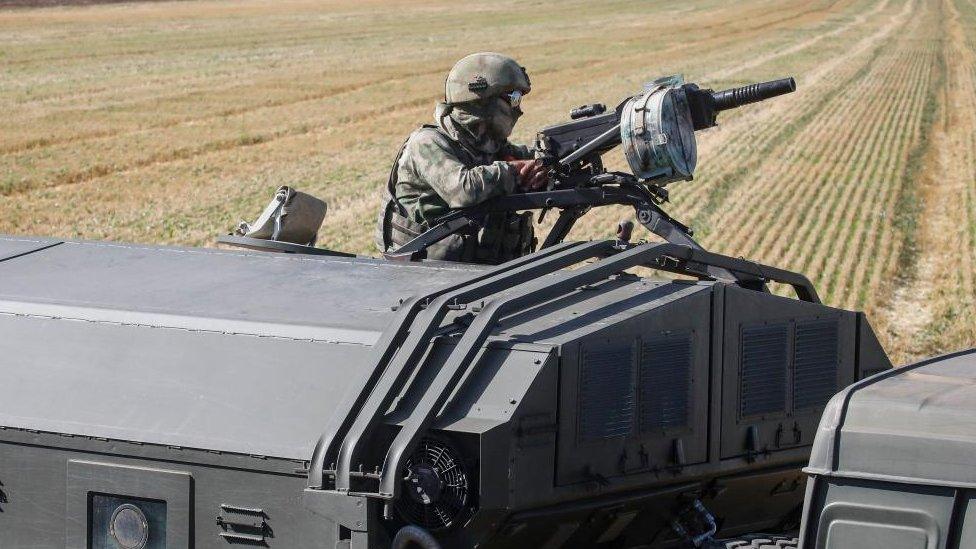Ukraine: Scottish surgeon helps set up field hospital
- Published
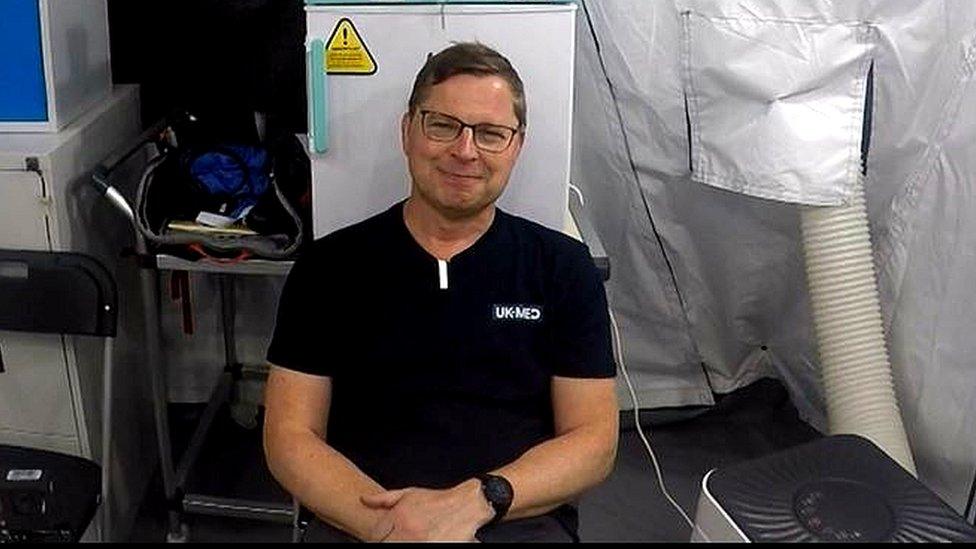
Prof Angus Watson has been carrying out surgical procedures at a pop-up hospital in Ukraine
A Scottish surgeon has swapped Raigmore Hospital in Inverness for a Ukrainian field hospital just 19 miles from the Russian border.
Prof Angus Watson has spent the last six weeks putting together the facility after Vladimir Putin's forces destroyed the local hospital.
Shells took out the operating rooms and left a giant hole in the wall of a maternity unit.
Now the consultant general and colorectal surgeon is working at a tented temporary surgical ward, serving a community learning to live with war.
The exact location of the facility can't be revealed for security reasons, but it is in an area previously occupied by Russian forces.
Prof Watson is there with the front line medical aid charity UK-Med which responds to humanitarian disasters and conflicts.
Speaking to BBC Radio Scotland's Drivetime programme, he described shock at what he found in Eastern Europe.
He said: "If you imagine a wee Scottish town with a couple of roads, maybe 3,000 people, the Russians have been in and destroyed the hospital, destroyed the shops and residencies.
"There are burnt-out buildings, particularly around where the railway station is. If you do a 360 degree look-around, almost every building has been either burnt or destroyed.
"There is a huge pile of windows - they had to replace every window in the hospital."
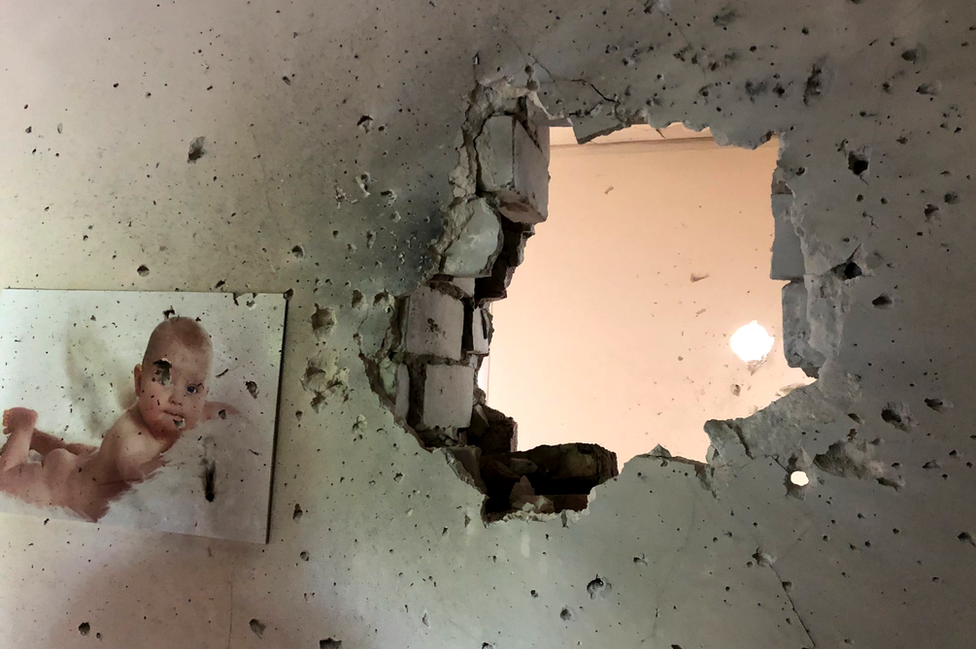
A hole in the wall in the maternity unit of a Ukrainian hospital shelled by Russian forces
UK-Med were asked by the Ukrainian ministry of health to set up a field hospital.
Three Russian tanks had fired shells into the local hospital. At first patients were evacuated or taken to the basement. Two children were born under the hospital.
After shells took out the operating theatres, UK-Med have worked to replace their operating capacity and provide Accident and Emergency services.
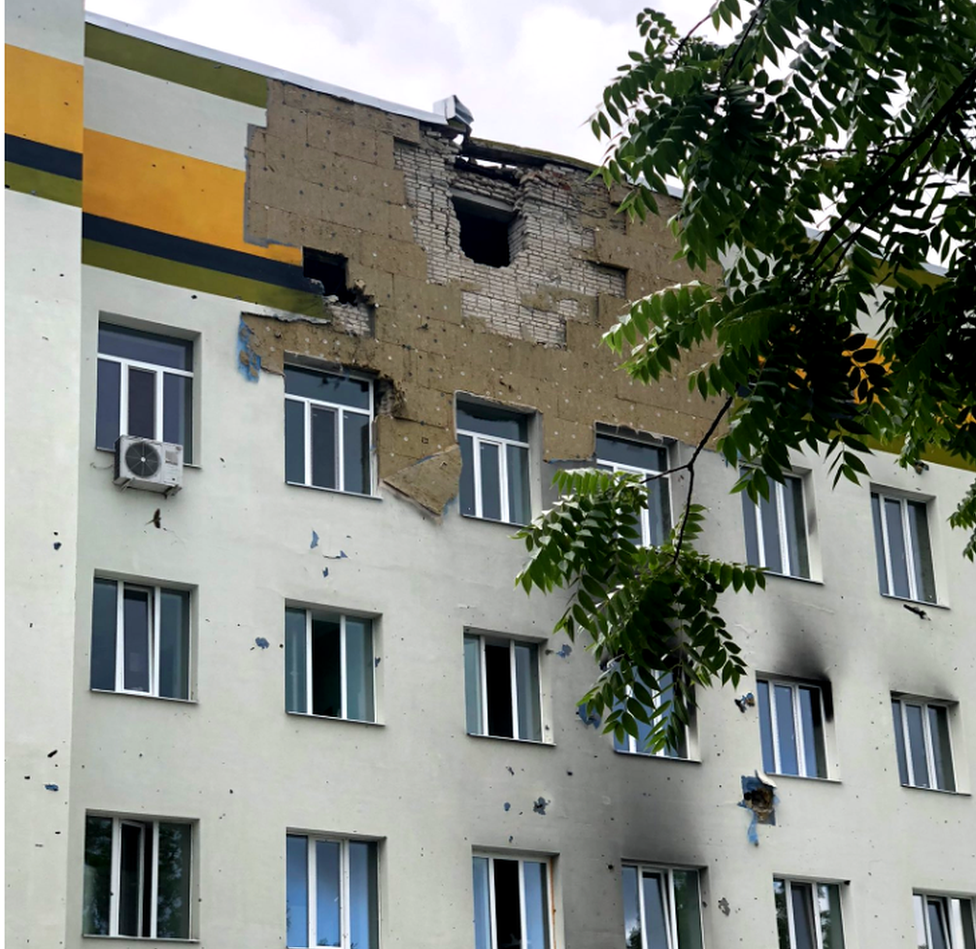
Prof Watson was shocked at what Russian tanks had done to the local hospital
Prof Watson said: "We have been out to set up a 20-bed field surgical unit with an operating theatre and recovery and resuscitation room.
We have been operating on patients - mainly civilians - but I also operated on one soldier who was having second stage surgery on his leg which was damaged by a bullet."
Local people cleared out of the area when the invasion began in February, heading west to cities like Lviv, and to other countries.
But, says Prof Watson, the local population has started to increase again.
"They've done a fantastic job clearing up and, of course, now they are looking for healthcare," he said.
It is not difficult for the Scot to see the impact the war has had on Ukrainian people.
He said: "When you see and speak to the local population, they are still traumatised. Although the Russians have been and gone, they have left their scars - both physical and mental.
"There's actually drone footage of the attack so you can see the three Russian tanks and there is no reason on earth to attack a hospital. With modern-day maps that hospital would have been clearly marked."
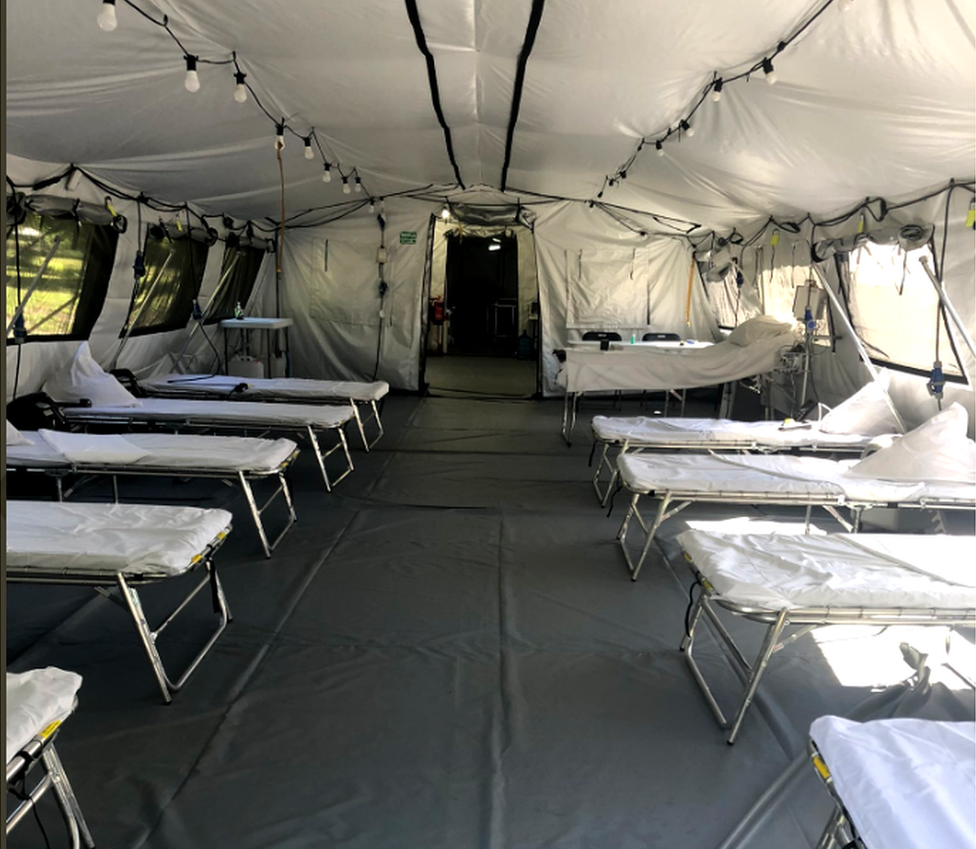
The field hospital has a 20-bed ward
Arriving at the hospital, the professor was able to survey the damage. He said the top three floors were immediately taken out of action.
And he witnessed scenes of devastation that will stay with him forever.
'Absolutely terrible'
"There was a shell that went through the wall of the operating theatre, went through the wall and hit a metal cabinet. You can see where the shell has gone in, and gone out," he said.
"I was speaking to the chief of surgery, a local surgeon who had worked in that hospital for 43 years, and he was in his office when the shell dropped and if the cabinet hadn't been there the shell would have gone into his office.
"Just below that there was a baby unit - there's a picture of a baby on the wall showing it's the maternity unit and there is a great big hole next to it. I thought this was absolutely terrible."
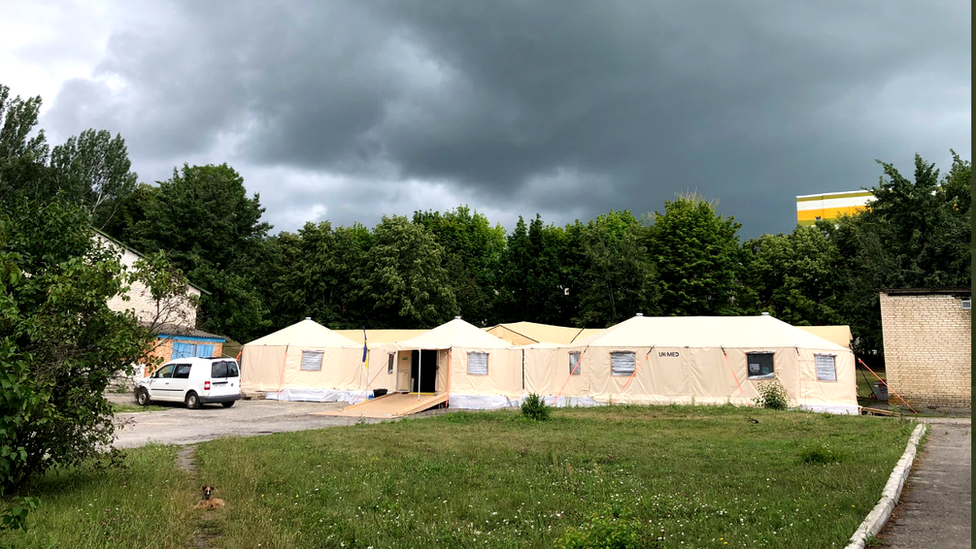
The field hospital took 12 days to build
The pop-up hospital was built in 12 days and includes an operating theatre, recovery area, 20-bed ward and A&E. It is staffed by medical teams from the UK and Ukraine.
And Prof Watson said they were extending their care into the communities nearby.
"They have also been doing primary care, getting out into the villages and doing good old-fashioned general practice.
"Those needs are still there and they are giving some mental health support and some psychological counselling as well."
Related topics
- Published11 July 2022
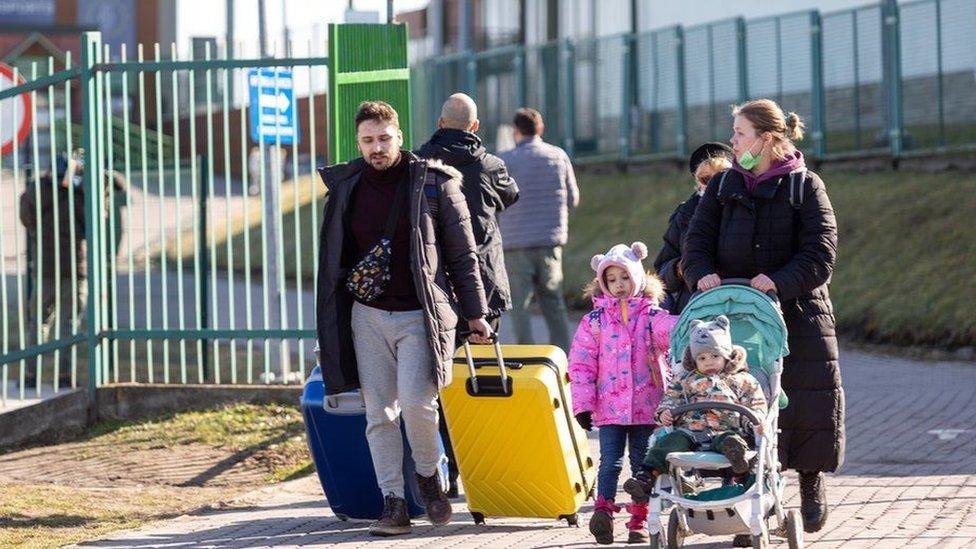
- Published21 July 2022
